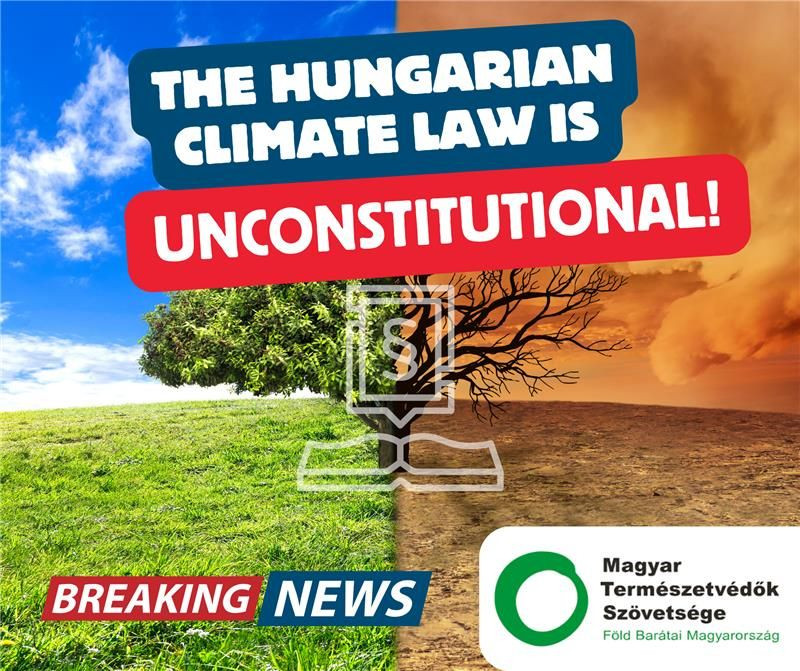
Press release by the Friends of the Earth Hungary
(Budapest, 4 June 2025)
The Friends of the Earth Hungary welcomes the decision of the Hungarian Constitutional Court to annul the climate law's target for greenhouse gas emissions by 2030, ruling that the legislator's target was insufficient. Environmentalists consider it a historic milestone that the Court also ordered the National Assembly to draft a comprehensive regulation by 30 June 2026, tailored to Hungary's specific circumstances and covering all areas of climate protection, including adaptation and resilience measures.
The National Assembly adopted the climate protection law in 2020, setting Hungary's targets for various aspects of climate action. The law was heavily criticised from the outset for its lack of ambition, failing to curb climate change effectively or provide for necessary adaptation efforts. One quarter of the Members of Parliament submitted two petitions to the Constitutional Court, challenging the constitutionality of several provisions. Numerous civil society and professional organisations also contributed to the process by submitting briefs; FoE Hungary addressed the Court twice with its opinion.
The Constitutional Court partially upheld the MPs' petition and annulled the provision of the law stipulating that Hungary shall reduce its greenhouse gas emissions by at least 40% by 2030 compared to 1990 levels. According to the Court, this regulation is insufficient for protecting the climate, as required by the Hungarian Constitution’s principles of precaution, prevention, and intergenerational justice. FoE Hungary emphasises the Court's finding that, since Hungary had already achieved this emissions level by 2023, the principle of intergenerational equity demands that further steps be defined.
In January this year, members of FoE Hungary’s youth programme wrote to the Constitutional Court, arguing that the current climate law represents a form of generational injustice by shifting the responsibility for emissions reduction onto future generations. “We are glad the Court agreed with our young members,” said Ákos Éger, Executive Director of FoE Hungary.
FoE Hungary considers it of historic significance that the Constitutional Court not only annulled the specific provision of the law, but also instructed the National Assembly to adopt by June next year a comprehensive climate regulation addressing areas beyond emission reduction, such as adaptation and increasing resilience, tailored to Hungary's national circumstances.
According to the environmentalists, the Court's ruling reflects the concerns of the Hungarian public, who are increasingly alarmed by the real-life impacts of climate change, such as extreme weather and worsening drought. Ákos Éger also recalled that FoE Hungary had already prepared a draft climate law in 2008, which would have provided a more ambitious and comprehensive framework. That proposal was submitted to Parliament in 2009 with cross-party support, but was ultimately not adopted due to the influence of the fossil fuel lobby.
Friends of the Earth Hungary offered its support to the National Assembly to help ensure that, over the coming year, a new climate law is developed that sets out meaningful action across all areas of climate protection in the interest of both current and future generations.







